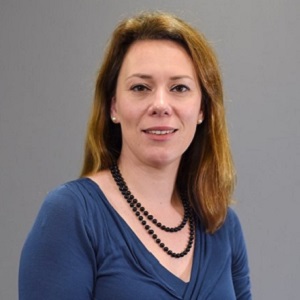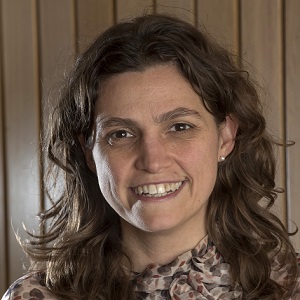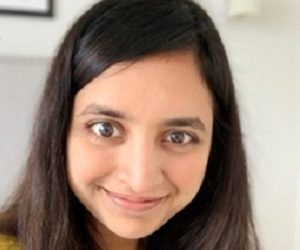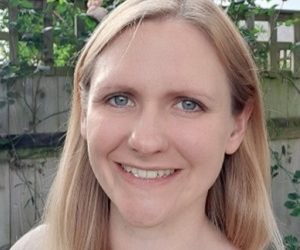Dr Jo Van Herwegen is an associate professor at UCL Institute of Education and director of the Child Development and Learning Difficulties lab. Her research focuses on improving educational outcomes, with a special focus on maths, using evidence from developmental psychology, educational neuroscience, and neurodevelopmental conditions. Jo has co-edited two books and has written over 50 peer-reviewed articles and book chapters. Her research has been funded by a number of charities and research councils, including EEF, Nuffield Foundation, UKRI and ESRC.
She is currently Head of Research for the department of Psychology and Human Development and member of the executive committee for the European Association for Research on Learning and Instruction (EARLI).
How did you became interested in learning difficulties?
I started my research focusing on language development in Williams syndrome when I completed my Masters in Belgium. As Williams syndrome was very unknown in Belgium, I contacted Prof Annette Karmiloff-Smith (who sadly passed in December 2016) as she was an expert on development in this rare genetic condition. She invited me to work in her lab and under her supervision I examined number development in infants with Williams syndrome together with Daniel Ansari. Ever since then, I have been interested in learning difficulties as I think research about neurodevelopmental conditions cannot only help us improve educational programmes and outcomes for those with learning difficulties, but examination of developmental trajectories for those with learning difficulties can provide a better understanding of alternative or compensatory trajectories for mathematical development and thus improve our theoretical understanding as well.
Can you give us an overview of your work?
My research broadly focuses on improving educational outcomes, especially for those with learning difficulties, by providing a better understanding of what factors relate to good outcomes as well as the evaluation of interventions and teacher practice, with a special interest in mathematical development and educational technologies or apps.
My current research includes a systematic review and meta-analysis on what works for students with Special Educational Needs in the classroom (funded by Nuffield Foundation). We also have a project that focuses on the creation of a toolkit related to dyscalculia, created for and with teachers and learning support assistants. In another project, we are examining how we can bust neuromyths related to specific special educational needs groups, including dyscalculia. In a final strand of current work, we are examining how apps and other interventions can help children with mathematical learning difficulties.
What are your most recent and exciting results?
This is a very difficult question! One of the findings from a recent survey that did surprise me was that members of the general public as well as educators know very little about dyscalculia and dyslexia, and how much incorrect information is endorsed when it comes to these groups of learners. It just shows that us academics have to become better at disseminating our research findings and become better communicators to avoid misconceptions.
What do you think are the main challenges in this research field?
We know that development is complex and that many domain general and domain specific abilities contribute to good educational outcomes. Yet, in research we often look at specific aspects of development (say counting abilities or how spatial cognition impacts on number knowledge at a specific age) and often fail to take development seriously. Also in practice, we often focus on specific targeted interventions which, as a result, may only deliver small impacts with small effect sizes. When it comes to learning difficulties there are a number of additional challenges, including large individual variability and issues around diagnosis and alternative developmental pathways.
In order to start addressing these challenges we really need to focus on longitudinal research, especially for groups with learning difficulties so we can get a better understanding of early predictors and resilience so we can deliver early and better intervention programmes. We also need to work more collaboratively and share data protocols, diagnostic criteria and measurement tools so that we can pool data resources and replicate study. Together with colleagues I have started to do this for neurodevelopmental conditions such as Williams syndrome (see https://blogs.ucl.ac.uk/wisdom/) and Down syndrome but further work for learning difficulties such as dyscalculia is required.
What are the most pressing research priorities?
Compared to dyslexia, research on developmental dyscalculia is scarce and thus we don’t know much about the specific difficulties these children have and how they can be supported in the classroom. I know it is frustrating for both teachers and learners with learning difficulties that research first focuses on the basic science to see where things go wrong to then inform how we can ‘fix’ things. I really think intervention research itself can inform theories and thus we should really work with teachers and learners to create more cost-effective ways of evaluating what works and for whom or in what conditions. That means focusing on research tools that are valid and reliable and can be used by teachers or learners in the classroom and most importantly can be used longitudinally.
https://iris.ucl.ac.uk/iris/browse/profile?upi=VANHE52 | @Jovanherwegen




